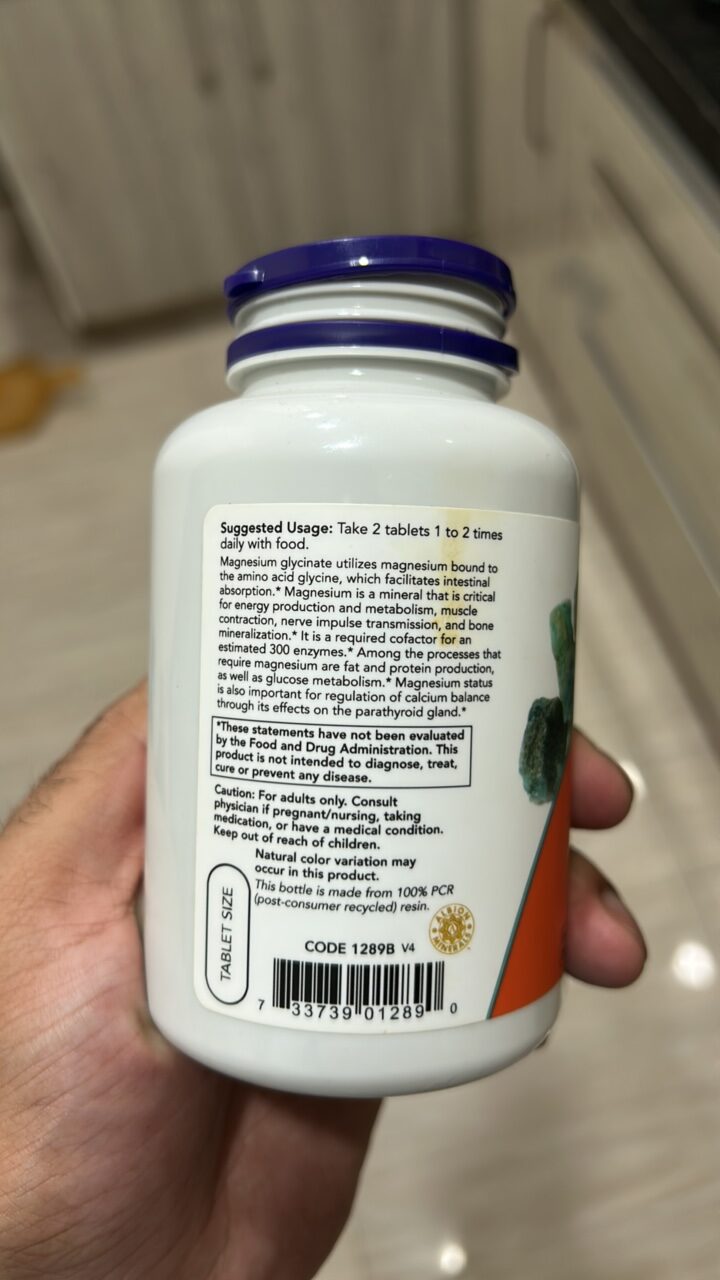
Barcode: 733739012890
Magnesium glycinate
HALAL
📝 Reason: Both ingredients listed, magnesium glycinate and amino acid glycine, are generally considered Halal. Magnesium glycinate is a mineral supplement, and amino acid glycine is a basic building block of proteins, both of which do not fall under the Haram categories as per Islamic dietary laws.
🏷️ Category: Supplement
📄 Certificates: Tablet Size, This Bottle Is Made From 100% Pcr (Post Consumer Recycled) Resin., Vegetarisch, Vegan
Ingredients:
Details
Understanding the Halal Status of Magnesium Glycinate
As more consumers seek to adhere to Islamic dietary laws, understanding the Halal status of supplements like Magnesium Glycinate has become increasingly important. This article delves into the Halal status of Magnesium Glycinate, exploring its ingredients, and providing clarity for those looking for compliant dietary options.
What is Magnesium Glycinate?
Magnesium Glycinate is a popular dietary supplement comprised of magnesium and the amino acid glycine. It is commonly utilized to support muscle function and promote relaxation, making it a sought-after choice for those looking to manage their wellbeing through proper supplementation. As we dive deeper, it is essential to clarify its Halal status.
Ingredients Breakdown
The primary ingredients in Magnesium Glycinate include:
- Magnesium Glycinate: A compound formed from magnesium and glycine. It is usually derived from mineral salts and is generally regarded as Halal because it does not come from animal sources and is free from Haram factors.
- Amino Acid Glycine: This is a naturally occurring amino acid that serves as a fundamental building block of proteins. Glycine is typically synthesized in labs and is Halal as it does not involve any prohibitive processes or sources.
Halal Certification Status
According to available resources, both Magnesium Glycinate and amino acid glycine are indeed considered Halal. The absence of animal-derived ingredients makes these components compliant with Islamic dietary laws. Additionally, the manufacturer’s commitment to using 100% PCR (Post-Consumer Recycled) materials for product bottles highlights an adherence to ethical practices.
E-Numbers and Their Halal Status
In the context of food and supplements, E-numbers are identifiers for food additives within the European Union. For Magnesium Glycinate, the use of additives is generally not applicable since its ingredients do not include any commonly controversial E-numbers associated with Haram sources. Below is a review of the E-numbers relevant to this supplement:
- E-Code: Not applicable
- Name: Magnesium Glycinate
- Status: Generally considered Halal
- Details: As a mineral supplement, it aligns with Halal guidelines.
- E-Code: Not applicable
- Name: Amino Acid Glycine
- Status: Generally considered Halal
- Details: Being a natural amino acid, it meets Halal criteria.
Why Choose Halal Supplements?
Choosing Halal-certified supplements ensures that one’s dietary preferences are respected and maintained. It also aligns with ethical considerations, as consumers are often concerned about how products are sourced and manufactured. Magnesium Glycinate, as a Halal supplement, caters to this conscientious approach. Furthermore, dietary supplements like these yield various health benefits, including enhanced muscle recovery and improved sleep quality.
Conclusion
In summary, Magnesium Glycinate is a Halal-friendly supplement supported by its ingredient composition and absence of contentious additives. Individuals seeking Halal supplements can confidently incorporate Magnesium Glycinate into their wellness routines. Always inquiring about the sources and certifications of dietary products can lead to informed and responsible choices. Regardless of dietary practices, Magnesium Glycinate offers benefits that many are sure to appreciate!
